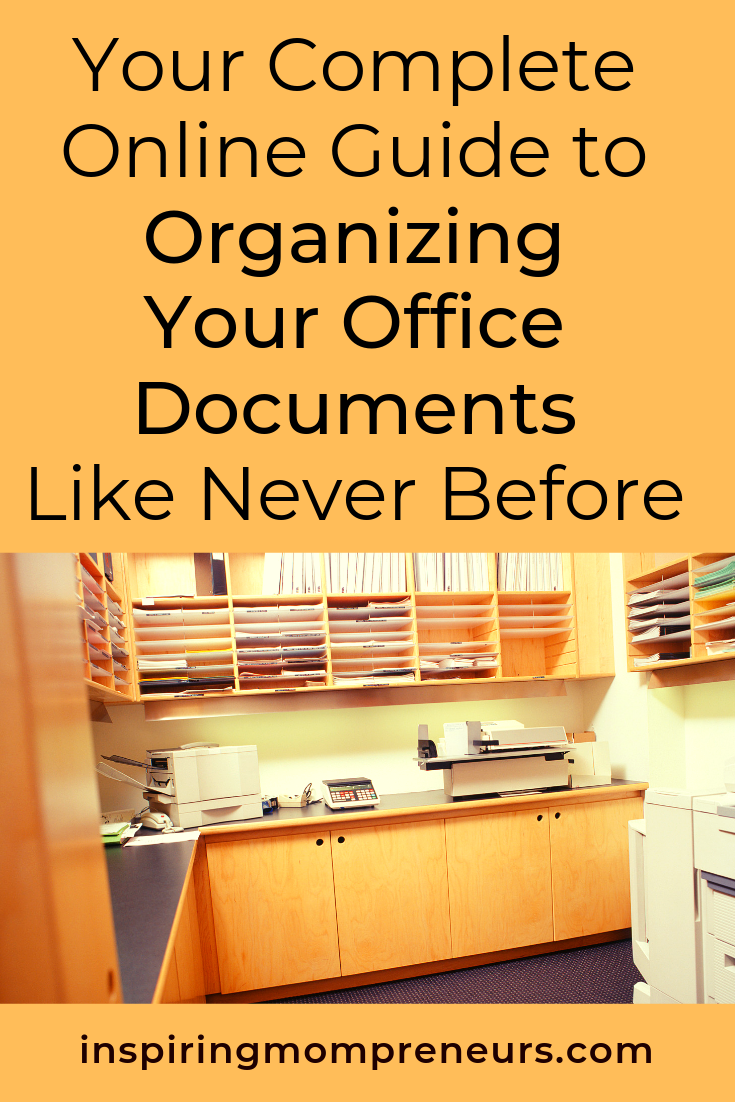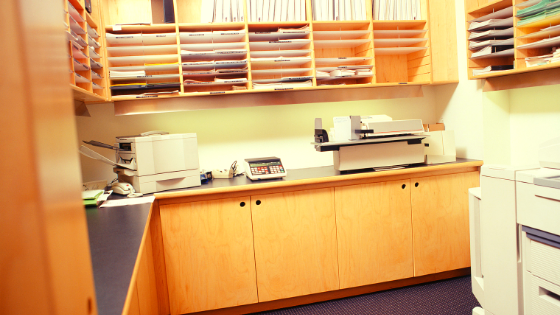Organizing and filing used to be neat and simple. A filing cabinet would hold marked 3-tab manila folders in larger hanging files. They would be arranged by name, subject or date. Almost anyone that had taken a business course in high school could easily learn this concept.
However, things have changed in the world with computers and technology. Organizing has been redirected to files in a computer, eliminating the need to keep certain paperwork.
While the concept sounds good, there are still reasons why documents are important to keep in paper form. Follow these steps to assure that your office can run smoothly throughout your ownership and beyond.
Clear up the Clutter
Every business has clutter. Whether it is in paper form or in files on your computer, there is a wad of unnecessary stuff that seems to continue building.
The process of reading and organizing may give you a headache, but this is a necessary step. Start with the core of your business and move down. Make piles go through a second time for accuracy.
Documents to Always Keep in Hard Copy
Just like a birth certificate, there are certain important documents that have to be original in form. When operating a business, consider the following forms to be sacred and they should never be thrown away.
 1. Tax Records
1. Tax Records
You may think that filing your taxes is just a routine that happens each year. However, get contacted for an audit from 5 years ago and you may feel differently.
By keeping your tax records, you will be able to quickly recall the events that transpired so long ago. There will be certain questions that you will have to answer and credible proof to present.
2. Formation
Any type of forms that pertain to the formation of your company will serve to benefit you if you should ever sell the business. The death of a legally authorized party can also prove troublesome without proof of ownership.
3. Leases
While a lease is not an absolute once inactivated, the wording can prove invaluable with certain negotiations on a new lease. This paperwork can apply to equipment or office space.
4. Mortgages
Unpaid mortgages can come back to bite you at any time. Even if there is a mistake made as to the status of a clear mortgage, these papers will serve as proof.
5. Stock Certificates
Stock certificates can be the most valuable papers that you own. This is your evidence of ownership and cannot be argued with should the time arise.
Other important papers should include company bylaws, shareholder agreements and board minutes.
Asset-Related Items
Proving your assets for depreciation, selling or trading in can prove impossible to show a worth without the proper records. The following records should always be easy to find for easy handling.
· Purchase price and date
· Any improvements
· Depreciation deductions
· Section 179 from tax form
· When the item was sold and for how much
· Expense of sale
Also keep any records pertaining to loss of items through theft, fire or other casualties.
Income and Expense Receipts
Receipts can be bothersome but only if they are allowed to pile up. Separate by income or expense, highlight the date and keep according to month.
You may want to make copies of the groups on a larger paper and save the originals in a file box.
According to the IRS, all supporting documents must be kept. These include:
· Cash register tapes
· Invoices
· Credit card receipts
· Deposit information
· Petty cash slips
· Forms 1099-MISC
Payroll Records
Keep your original employer identification number as a hard copy. Tax-related employee records, such as W-2s and personal information should be grouped together under each employee. There is a lot to keep track of when it comes to employees.
Other information may include:
· Undelivered W-2s
· Amounts and dates of all wages, annuities, etc.
· Dates of employment for present and past employees
· Dates and amounts of tax deposits made
Purging Unnecessary Paperwork
By this time you probably feel knee-deep in piles. You may wish to keep the computer files to sort for another whole day.
It is time to purge. Get rid of scraps of paper that have no clear evidence of where they belong. Throw out advertisements and coupons that are no longer valid. You will be surprised at how much junk has accumulated.
If you do not have a shredder, get one. Shred anything that has your company name or personal name and account number on it. Identify theft is a real threat these days.
Binders
One of the easiest ways of keeping important papers in order is through comb binding.
Comb binders use heat-activated binding strips to keep documents flat and easy to ship or store. There are no rings, bulky sizes or punching holes. Each subject can be referred to with ease by looking at the marked front. They even lie well in hanging folders.
Work Area
Once you have completed the sorting, purging, binding and filing, take a good look at your desk. Pencil holders, pens, magnets, and other small items belong in a drawer.
There should be nothing on the flat surface except your computer and 3-4 holding trays.
Use one tray for paperwork that needs to be addressed. Use another for binding and storing and the other 2 in the order of importance. You may want to place a sticky note on each paper with a note for a deadline.
A computer is a nice tool to have for your daily workload. However, it will never replace the necessary documents and sources for others to see.
Audits, selling a business or taking on shareholders requires significant disclosure. Having everything at your fingertips will make your time run so much smoother.
How organized are your office documents? We are not quite a paperless society yet, are we? My paperwork is all over the show, in files, in filing cabinets, in packets, in boxes. Taking this advice to heart.


